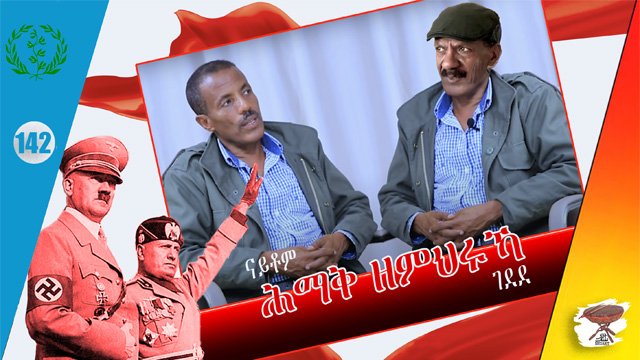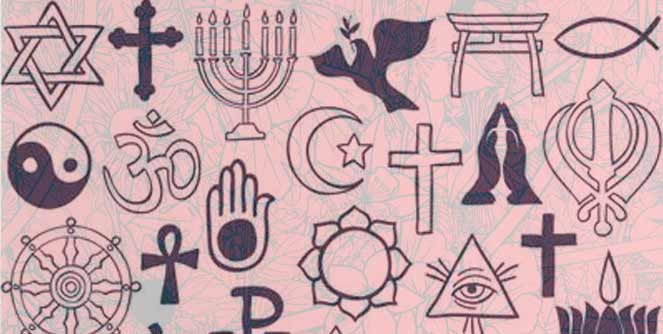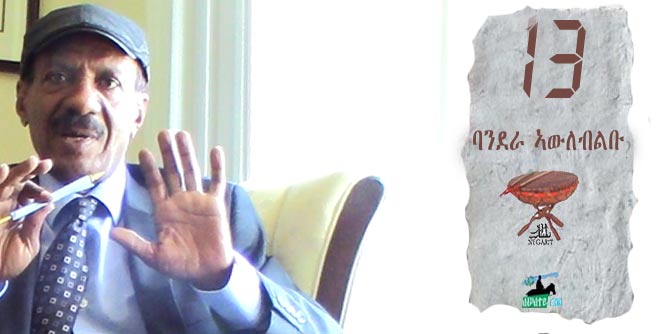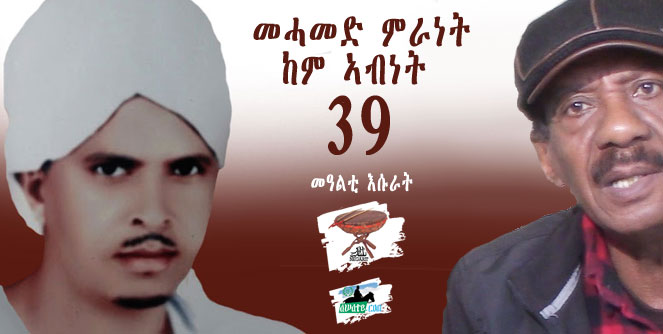The General’s Bad Lessons
A longtime ago in the environs of Kulentebai, the late Tesfai Tekhle, the liberation era commander, told a group of young combatants a joke. He was warning of a military involvement in governance in post-independence Eritrea. That is an important lesson I learned from him.
Tesfai told us the joke: once a general was sick in the head and was admitted to a military hospital and the military doctors decided to operate on his head. They put him on an operation table and opened his head, took his brains out, fixed it, and sewed his head back. Moments later the general was cured. He jumped off the table, put on his uniform, dusted it off, and walked out. The doctors followed him to the door to see him off and stood in attention and salutes him. He jumped onto his Jeep and drove away.
The relieved doctors returned to the operation room only to find his brain on the table. A doctor exclaimed, “Oh, we forgot to put his brain back and sewed an empty head.” They were shocked and trembled fearing a severe punishment for the mistake. They also wondering what will happen to a general without brains! A junior doctor sitting on a corner of the room consoled them: “don’t worry, he is a general, he doesn’t need brains.”
The General
Last time I hinted that “I will soon have a word with Major-General-Doctor-Jigna-Tegadalay, Agazianawi-Tekhlebeirhan. The time for that for the word is today, in Negarit 142.
First, I would like ask the Dr General: why he doesn’t have ‘grnb”, the customary scars on his temple or eyebrows? I think some people are not born with face marks; their parents do that. Right? I might be wrong.
However, it’s not a big issue, don’t feel bad about it. I also do not have grnb or bTaH either. That’s why I acquired a virtual bTaH-BTaH, face scars. By the way, it’s called Sheddeli, and if that is too difficult for you to pronounce, though you hold a PhD, at least TbaH-TbaH not bTaH-BTaH! But why go there? Let’s dissect what bTaH-bTaH means to you in the context of the campaign you and your likes are in: deep inside what you and others want to say is Aslamay, Muslims, it’s a weak denotation. Isn’t that what you discuss overtly and covertly with your Agazian groupies?
Incidentally, I knew about you when I was looking for a Tigrigna translation of the word enlightenment. Someone texted me saying it’s “Abrehot” with a link to a video where you explained that. Thank you for that and pls check Negarit 83 above where you were my subject. It was last year and I thought, ‘a man who talks about abrehot (enlightenment’, must be not only enlightened but must have a help floating over his head, berhan z’Aselo seb. Unfortunately, I discovered you are still living in the darkness of the Middle Ages. Proof?
The proof is, you stated that Eritreans who have bTah-bTaH (read Muslims) have changed the Eritrean Tigrigna speakers into Arabs and they want to do the same with Tigray. Really? Let me assure you, I am Tigrigna speaker, and I am a bona-fide Habeshi. No one changed into an Arab. However, I muster Arabic and I know the Arab culture surrounding our region…and it is not an alien culture in Eritrea—revise again your PhD literature. If you do that, you will know it’s a good thing to be familiar with other cultures and know their languages. It’s not something to be ashamed of. I hope you do not expect me to apologize: “Sorry, I speak Arabic and know the Arab culture, please forgive me for that crime! Do you want people to apologize for what you consider a crime?
Incidentally, I always admired the lady who interviewed you, she really exposed your bigotry. Bravo. But now I am worried she may change into a bigot; many we trusted and considered liberal and enlightened before the trying times, are showing their true faces. WE always ask: who’s next? See, a Tigrinya saying goes: kab Hmaq zgebrukha, Hmaq zemherukha (the bad things they do to you is not worse than the bad things they teach you). Your bigotry against many of us is not as painful as making us suspicious of many others. That is the bad lesson we learned from you! You are taking away our innocence and sincerity.
If you ask me, you need to apologize for disgracing the PhD certificate, and the military rank you hold because you made a statement not worthy of a middle school student.
I hope you followed the story I heard from a liberation era commander, the late Tesfai Tekhle, at the beginning of this episode of Negarit. Anyone can have a health issue, but is it possible you were victim, and your brains were forgotten in some operation table?
Never mind that; please pay attention to a question I have for you, it might lead you to do some research on it: what does the noun Tigray mean, the origin of the word?
What’s the origin of the noun Tigray
So far, I have heard and read that Tigray means something not in your thoughts. Let me give you a little context so that you understand it properly. Let’s me start with a basic introduction to Arabic.
Most Yemenis pronounce J and G—that is why they say Gemel for Jemel, Gemil, for Jemil, Git for Jit. The Egyptians adopted that because many of them trace their ancestry to Yemen or were influenced by ancient Yemeni immigration to Egypt. That’s why the rest of the world wrongly identifies the Arabic G for an Egyptian J though it’s originally Yemeni. That’s due to the overwhelming influence of Egyptian artistic production, popular dramas, songs, movies, and books.
Now let’s go to ancient Axum, the center of the ancient Habesha Kingdom. I do not want to delve into the meaning of Habesha, at least for now, but my topic is the meaning of the noun Tigray.
According to ancient narrations and traditions, Tigray comes from Tujjar, its Yemeni pronunciation, Tuggar. In time, Tuggar became Tigrai. That is the origin of the region’s name.
Axum used to be a bustling trading post and was inhabited by many traders and merchants trading everywhere from India to Egypt, Syria, Arabia, and Persia—it’s was known as the land of the Tuggar, the land of merchants. That was before “merchant” negaaday in Tigrinya, and negaadie in Amharic became derogatory terms.
Mengistu Hailemariam once explained AmHara as Mountain-dwellers in Hebrew or some related language. He said it’s a compound word, Am + Hara. In Eritrea, mountain/highland dwellers are called Kebessa (I think you call it DegouAa in Tigray). And the Merchant region dwellers of Axum were called Tuggar. So, modern Tigray is ancient Tujjar-land
I first heard that Tigrai means Tuggar from Ghaddafi in a televised interview when he was trying to mediate during the Baddme war. I am still looking more information on the topic and once I find enough to share, I will do that.
So, dear General Dr. Tekhleberhan, you are an offspring of merchants, Weddi Tujjar, wedi Negaado ikha. Humble yourself, you don’t own the regional history alone, there are many people who share that history though they don’t want to go all racist and bigots on you. History is not a box that you own individually and keep under your armpit from generation to generation. Cultures change, the decay, prosper, acquire different traits, or stay frozen in time. And to talk about 1000s of years old history based on skewed oral narration full of superstitions, and cultural prejudices is simply foolish. And what, in a nation that is so illiterate that many people like you are so sure of their claims when they don’t even remember when their grandparents were born. Do you have a birth certificate of your grandfather? I am sure you don’t like others, but you narrate stuff, superstitions, unprovable and unrecorded genealogical history, with so much certainty!
My dear respected listeners and readers
a few of you remind me not to waste my time in such “petty issues”—challenging individuals like our “star” of today. Unfortunately, I feel insulted by that reminder. Do you really believe I am wasting my time? If I do not think it’s important, I wouldn’t raise an issue—allow me that freedom to choose my topics. Also, remember I am a writer and a speaker, and should not be restrained from expressing my views when I am promoting that freedom for all.
I think it is your turn to remember: if an injury is not cured in time, it will grow uncontrollably and it might turn to be malignant—it could result in the amputation of a hand or a leg, or even cause death. Nothing venomous is so small to ignore. And sometime, “dawini bima hiya aldaou” (وداوني بالتي كانت هي ا لداء)—curing the ailment with the cause of the disease, is a perfect medicine. They say the antidote for a snake bite is medicine that is extracted from snake venom.
All our disappointments and frustrations enrich our experiences; we are learning the difficult way, and it makes us stronger. We will be fine if we just avoid getting entangled in wars that are not ours, like the Isaias excursion into Ethiopia, or the wars he has been waging since he came to power. They are not our wars. Everyone who holds bad feeling against us (like the general I mentioned above) should be challenged with correct arguments and with confidence. At the same time, they must be treated fairly and not with vengeance. At the end, remember that as a people, we had a decent culture until the PFDJ abused and destroyed it. We will be fine, never give up.
NB: This is a close translation of what I delivered in Negarit 142 in Tigrinya.





Awate Forum